Is SEO Worth It For Small Businesses: Proven SEO Tips

Is it even worth investing in your website now that everyone is on social media? When running a small business, you want to make sure that everything you spend your money on is worthwhile—and many of the small business owners we work with are unsure whether SEO will help them. Is SEO worth it for small businesses? Absolutely, it enhances online visibility and drives targeted traffic.
In today’s fast-paced digital landscape, small businesses frequently face the challenge of building a strong online presence. With limited budgets and resources, they must maximize every marketing dollar. As a result, we are left with the question: Is SEO (Search Engine Optimization) important for small businesses? This comprehensive guide goes into detail to answer this question and shed light on how SEO can help small businesses.
What Is SEO, And The Benefits Of SEO For Small Businesses?
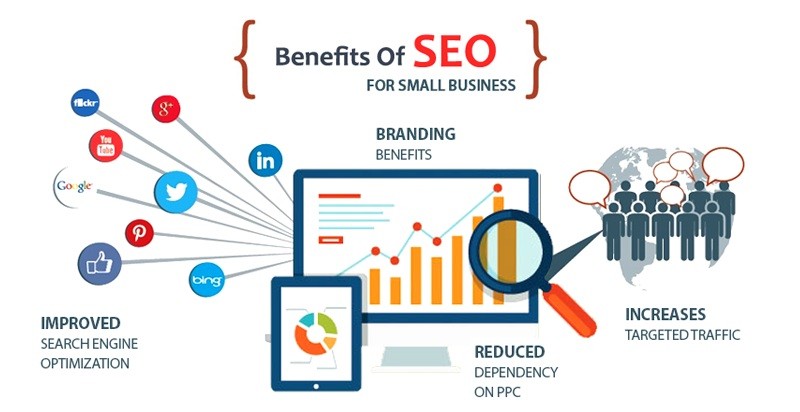
SEO is a digital marketing strategy that boosts a website’s visibility on search engines like Google Search, Bing, and Yahoo. It combines on-page and off-page strategies to improve a website’s ranking in search engine results pages (SERPs). But why is it important for small businesses? Let’s have a look at it:
1. Attracting New Customers
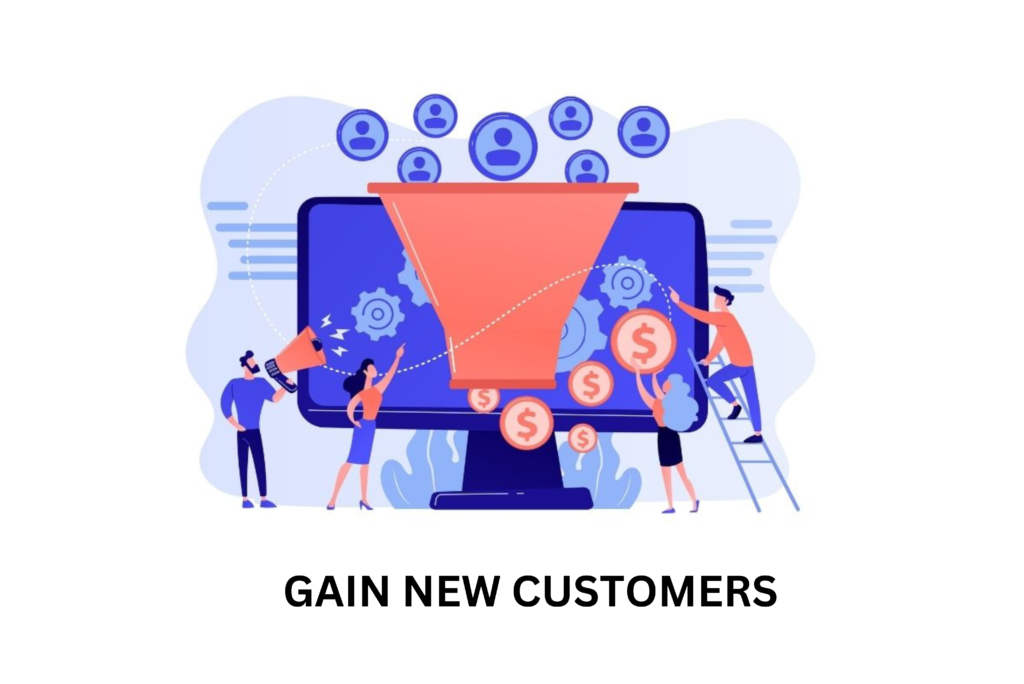
The first way that SEO helps small businesses is to attract new customers.
Many business owners wonder, if is SEO worth it for small business. The answer lies in increased brand exposure and customer acquisition. Consider how you use a search engine to find an answer to a question. Do you scroll through pages and pages of search results, or do you click the first few links and go with what they say?
If you’re like most people, you select the latter. Entrepreneurs often question whether, is SEO worth it for small business success. The investment pays off through improved search engine rankings. Search engine optimization is all about getting customers who are looking for topics in your niche to visit your website. By answering the most important questions about your topic better than your competitors, you can attract a consistent flow of new customers who may have never heard of your brand but are interested in your field of expertise.
Local SEO can take it a step further, bringing customers to your front door. Customers, after all, most frequently use local SEO keywords, such as “near me,” when they are actively looking to visit a business and spend money. Ranking higher for these local keywords can result in significant monthly revenue.
2. Establishing Credibility And Brand Visibility

The second way SEO can help your SMB is to establish credibility in your industry and boost brand visibility.
Business owners should recognize that the question is SEO worth it for small business, translates to long-term benefits and sustained growth. Consider you’re an active parent who homeschools your child. Every month, you may search online for homeschooling tips and tricks, homeschool routines, or homeschool unit studies. You want to wait to buy anything because you’re just starting homeschooling. However, when researching, the same brand or two appear repeatedly.
Related: SEO & Reputation Management: An In-Depth Guide
When you finally decide to invest in homeschooling supplies, will you go with any old brand? Will you invest in a brand that has consistently provided you with high-quality information about how to educate your child?
Entrepreneurs debating, whether is SEO worth it for small business, should consider the role of building brand authority and trust. This indicates the power of search engine optimization.
Creating consistent, high-quality content that adds genuine value to your target audience strengthens your brand in their minds. Websites that rank highly organically are frequently perceived as more trustworthy by potential customers, resulting in higher conversion rates. Thus, the question arises “Is SEO worth it for small business wanting to increase leads?” Yes, as it optimizes the website for better lead generation. Simply put, organic leads have a higher conversion rate than paid leads.
Search engine-optimized content creation allows you to consistently nurture leads, priming them to do business with your brand when they’re ready to make their next purchase in your industry.
3. Long-Term Returns

Business owners frequently ask, is SEO worth it for small business in terms of time and resources? The returns it gets, in terms of online presence, make it worthwhile. Most marketing campaigns are time-sensitive. For example, you could run a television ad for a week or a month, but once that period is over, your company no longer benefits like driving traffic and boosting sales from advertising.
Search engine optimization functions differently. Posting SEO-rich content may not yield immediate results. Instead, profits will steadily increase, followed by a plateau of long-term, consistent returns on marketing investment. And evergreen content pages that initially rank high but then drop in rankings can frequently be refreshed and empowered for a fraction of the cost of creating the content in the first place.
4. Competitive Edge

Is SEO worth it for small businesses looking to compete online? Yes, it levels the playing field and boosts competitiveness. In today’s competitive marketplace, your competitors are most likely investing in SEO. To remain competitive and gain an advantage, small businesses must implement SEO strategies. This increased visibility not only attracts targeted traffic but also increases credibility and trust, as businesses that appear at the top of search results are often viewed as more trustworthy. SEO also enables cost-effective marketing, allowing small businesses to compete with larger competitors without spending a lot.
Your current SEO efforts can continue to increase organic traffic for months or even years to come. This cumulative effect has the potential to yield a larger ROI (return on investment) over time than other short-term marketing efforts. Additionally, SEO helps small businesses connect with their local audience and increase customer satisfaction by emphasizing local search optimization and offering a better user experience. Essentially, SEO gives small businesses the tools they need to successfully navigate the online market, adjust to changing trends, and establish an effective and recognizable presence within their industry.
5. Cost-Effective Marketing

Is SEO worth it for small business marketing efforts? As it ensures visibility in a crowded digital marketplace. Traditional advertising methods are often prohibitively expensive for small businesses. In contrast, SEO provides a low-cost way to reach a larger audience. For small businesses, SEO is essential to enabling affordable marketing. In contrast to traditional advertising techniques, which can be very expensive, SEO enables small businesses to reach their target market without breaking the bank.
So the question is SEO worth it for a small business budget, is met with a resounding yes, given its cost-effectiveness and long-term benefits. Small businesses may generate organic search traffic from people who are actively looking for their products or services by optimizing their online content for relevant keywords and increasing the visibility of their website in search engine results which results in increased revenue.

How Can Small Business Owners Implement SEO?
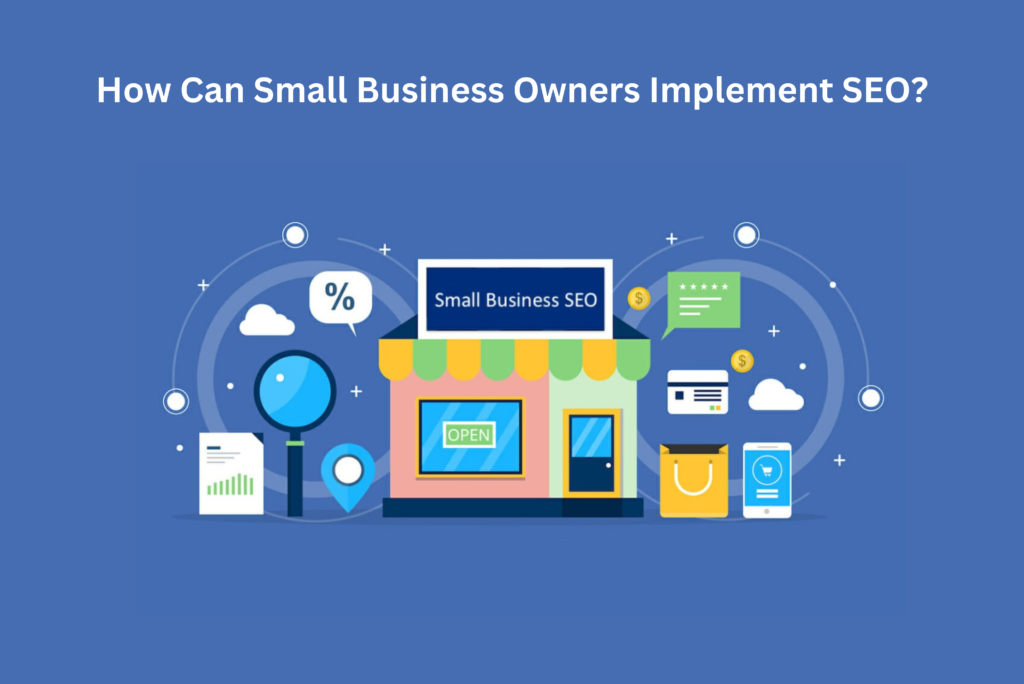
A small business must take several key actions to implement SEO:
Keyword Research: Conduct keyword research to find the terms and phrases that individuals in your target market use when looking for comparable goods or services. The question is SEO worth it for small business entrepreneurs, is answered through improved online discoverability and market reach. Most importantly, you must consider search intent when conducting keyword research and deciding which pages to optimize for which terms.
On-Page SEO: Make sure the text, headings, meta tags, and images on your website are all optimized for the selected keywords. As these elements impact SEO, make sure your website loads quickly and is optimized for mobile devices.
High-Quality Content: Create High-quality content that meets the needs and interests of your target audience. It should be informative, interesting, and well-organized. Keep your website updated with new content regularly to keep search engines interested and users interested.
Link Building: Get links from reliable websites in your industry to build a backlink strategy. Backlinks can be effectively constructed through social media, outreach, and guest posting.
Local SEO: If you have a physical location, make sure your website is optimized for local searches. Getting client testimonials and setting up a Google My Business profile are essential components of this.
How Long Does SEO Take To Generate Results
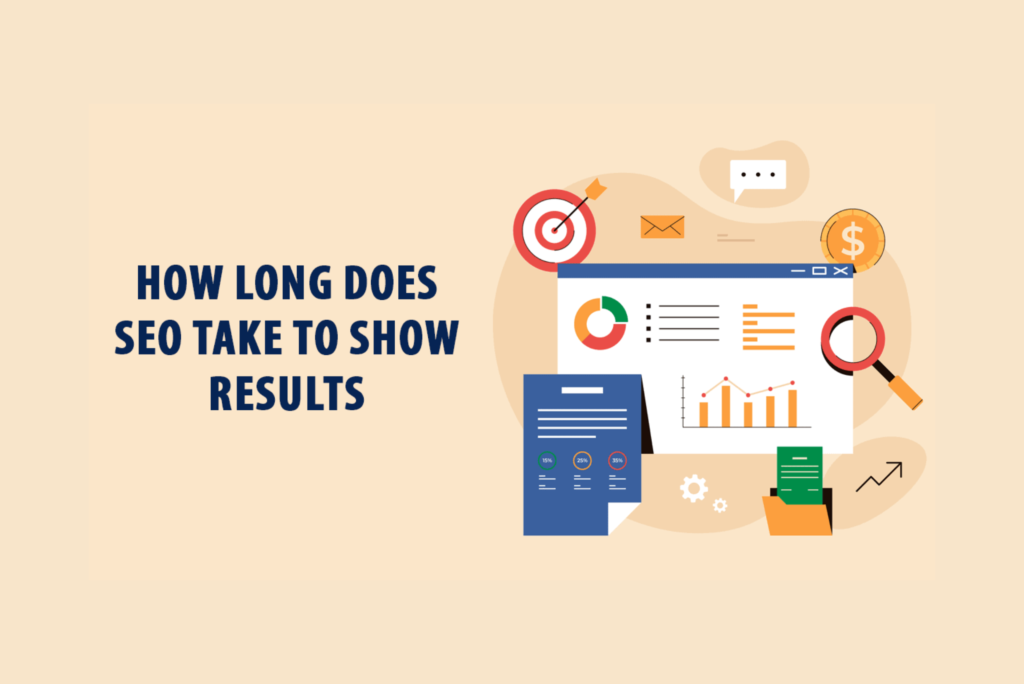
Google and other search engines reward consistency. This implies that established blogs with regular updates may rank higher than recently established blogs with excellent content.
The time it takes for your company to see results from its investment in SEO will depend on several factors, including:
- How many other businesses in your niche are competing for the same keywords?
- Consider factors such as the number of people searching for the topics you communicate about
- Quality of the content you are generating
- The level of SEO Techniques that you apply
- The number of inbound links that you manage to accumulate
Understandably, businesses want a quick return on their investment. Remember, SEO is designed to provide long-term returns and future-proof your business. Over time, it will generate a continuous, built-in advertising stream. But it takes time to get there. Experts predict that a business’s focus on SEO will take anywhere from four months to a year to produce results. However, once you start seeing those results, you can expect them to continue and even improve over time.
How Much Does SEO Cost For Small Business?
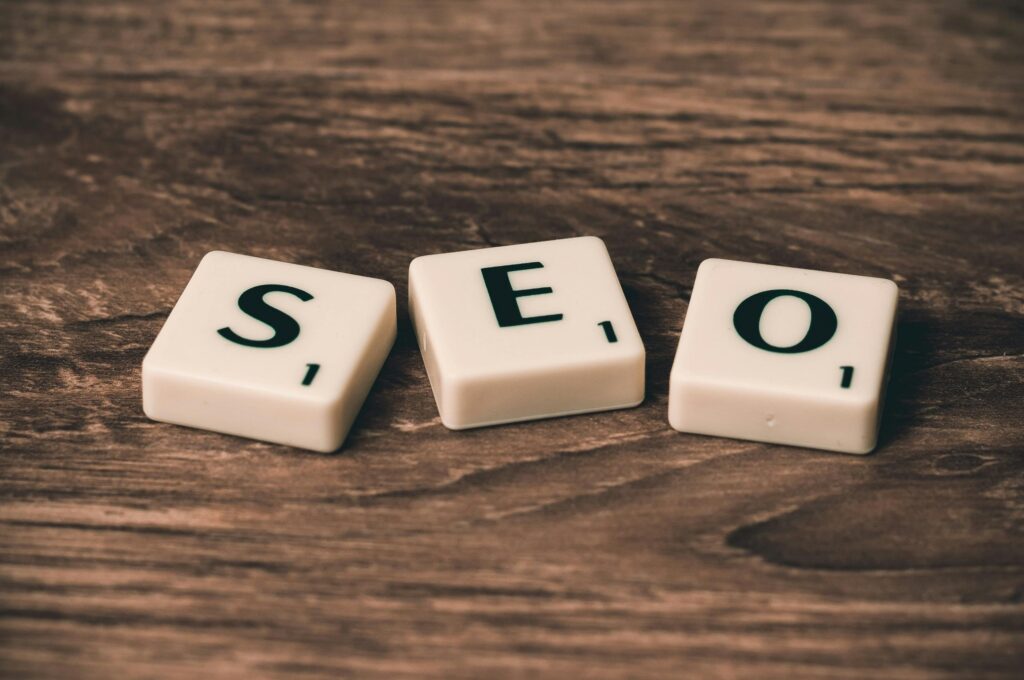
The cost of SEO varies greatly depending on whether you are starting a one-time project or providing ongoing services. It also depends upon:
- How large is your website, and how many pages need to be optimized?
- How much new content should be created?
- How many technical SEO issues need to be resolved?
- If you own a small business with multiple physical locations, do you need to set up or edit your business profile listing?
- How many backlinks does your site currently have? Are there any spammy backlinks that need to be removed?
- How strong is your competition? Where are you currently ranked in comparison to them?
- Are there any aspects of the work that you and your team will handle yourself?
Now that you know how much SEO is worth to your business for your main keyword, as well as how much you can expect to pay for SEO services and ROI in the short and long term, we can move on to our next question.
What’s the Cost Of An SEO Alternative?

The cost of an SEO alternative varies greatly depending on the specific option you are considering. SEO (Search Engine Optimization) is a digital marketing strategy that aims to increase a website’s visibility in search engine results. Alternatives may include paid marketing channels or other methods of driving online website traffic.
Paid Advertisement: Pay-per-click (PPC) advertising on platforms such as Google Ads or social media channels may be an alternative to SEO. Costs for PPC campaigns vary depending on industry competition, target keywords, and ad placement.
Related: What is Better SEO or PPC?
Social Media Marketing: Using social media platforms for marketing purposes is another option. While organic social media efforts are typically free, paid advertising on platforms such as Facebook and Instagram may incur costs.
Content Marketing: Creating and promoting high-quality content using techniques such as sponsored content, influencer marketing, or native advertising can be an alternative to traditional SEO. The cost of content marketing is determined by the strategy chosen.
Related: How to Do SEO Content Writing That Ranks in 2024
Email Marketing: Email marketing is a cost-effective option for creating targeted email campaigns. Costs may include fees for email marketing platforms or services.
Affiliate Marketing: Another option is to promote products or services through affiliate partnerships. Costs in affiliate marketing frequently include paying a commission to affiliates for successful referrals.
Influencer Marketing: Collaboration with influencers in your industry to promote products or services is an option with varying costs depending on the influencer’s reach and engagement level.
Why Local SEO Is A Great Opportunity

We recommend that small businesses focus on local SEO, which overlaps with broader SEO techniques but employs some unique tactics such as optimizing local business profiles and requesting customer feedback.
Local SEO pays because people have a higher buying intent when searching for local businesses, so traffic is more likely to convert into sales. Many local business services have a relatively high average customer value, increasing the likelihood of generating an ROI from SEO.
Furthermore, because local searches have less competition than national searches, local SEO is more likely to produce results and improvements. If you are a web designer, you may be able to work virtually for clients all over the world, but if you do not invest in local SEO, you are at risk of losing valuable revenue.
Does SEO Work For Small Businesses In Comparison To Big Players?
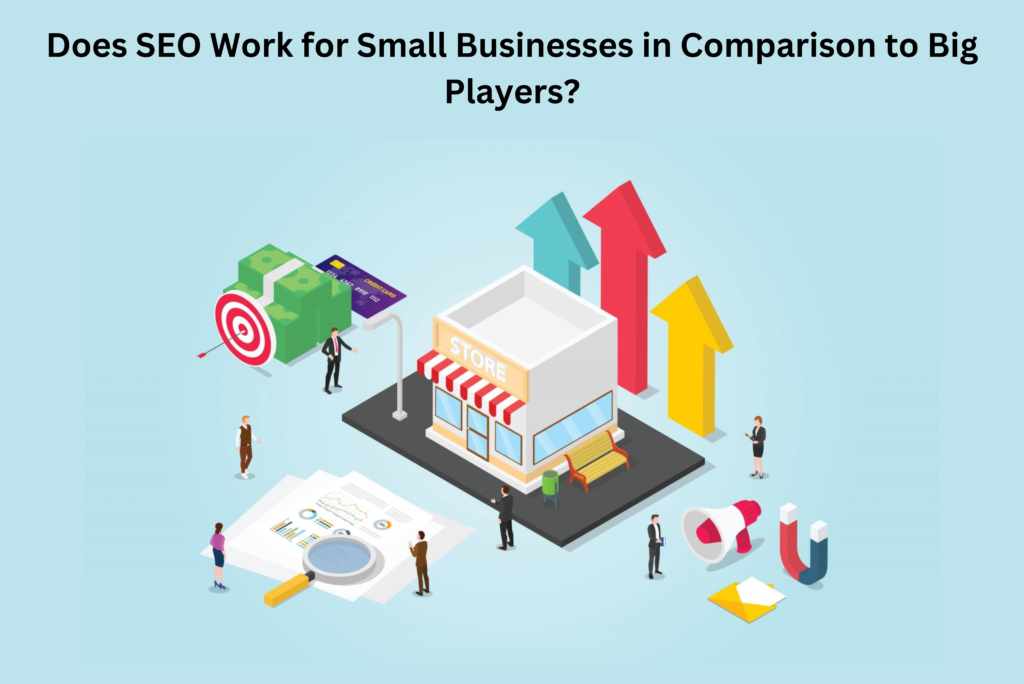
Does SEO work the same for small and large businesses? Definitely, and the differences between small and large businesses demonstrate why. The perception may be that SEO is designed for large corporations with massive budgets, but small businesses have their distinct advantages in the SEO realm.
1. Implementation Agility: Given their size, small businesses frequently face less red tape. This allows for quicker decision-making and adaptation. When a new SEO trend emerges or Google updates its algorithm, a small business can pivot and adapt more quickly than a big corporation.
2. Localized Targeting: Big businesses frequently target broader, more generic keywords, leaving space for local and niche-specific terms. Small businesses can focus on these specific keywords and reach a highly targeted local audience.
3. Personalized Engagement: Larger corporations can sometimes appear impersonal. Small businesses can capitalize on personalized engagement by responding to reviews, comments, or requests in a more tailored manner, which can improve local SEO rankings.
4. Tailored Content Creation: While large corporations may push out content on a large scale, small businesses have the flexibility to create content that is specific to their target audience. This tailored content may resonate more deeply with its intended audience, resulting in increased engagement and SEO rankings.
5. Competing In The Long Tail: Large companies frequently concentrate on high-competition short-tail keywords. Small businesses often benefit from long-tail keywords, which are specific phrases with low search volume but high conversion potential. These might be overlooked by larger companies, but they can be goldmines for small businesses.
6. Authenticity And Trustworthiness: Consumers prefer genuine interactions and are wary of faceless corporations. A smaller business has the advantage of developing genuine relationships and trust, which can result in better online reviews, recommendations, and local SEO rankings.
In essence, while large corporations have the financial resources, small businesses have flexibility, authenticity, and the ability to engage at a grassroots level. As a result, small businesses not only stand out but also have distinct advantages that, when properly leveraged, can lead to significant SEO success. Business owners should understand that the question is SEO worth it for small business, pertains to sustained online success and adaptability.
Is SEO Worth It For Small Businesses In 2024?

Businesses often ask, is SEO worth it for small business visibility, realizing it’s crucial for standing out in search engine results. Despite the increased competition on SERPs, yes, SEO is still worth it for small businesses. A strong Google presence is essential for increasing brand awareness and trust, as well as getting your products or services in front of your target demographic. When done correctly, SEO generates a much higher ROI than other search engine marketing tactics such as Google Ads. It improves your online visibility, allows you to sell more products, and expands your pool of potential customers.
Contact SEONerds today to learn how organic SEO services can help you increase traffic with potential SEO tools, conversion rates, and daily revenue.
Is SEO Worth It For Small Business FAQs
Q. Is paying someone to do SEO worth it?
Ans. While SEO services are not cheap, they can be a worthwhile investment if you want to increase traffic to your website and conversions.
Q. Is it worth spending money on SEO?
Ans. Yes, SEO is a tried-and-true strategy for expanding your business by increasing brand visibility to new customers. By increasing organic traffic, you may reduce spending on expensive pay-per-click ads.
Q. Is SEO Still Worth It for Small Business?
Ans. Although running an effective SEO campaign takes more time and effort, organic search is still worthwhile. It's much less expensive to invest in, generates more click-throughs than PPC, and organic search results are more trustworthy than PPC ads. You won't get a top ranking right away, but your business will benefit greatly in the long run.
Q. What are the 10 SEO Tips for Small Business Websites?
1. Quality Over Quantity
2. Responsive Website
3. On-Page SEO Mastery
4. High-end Security of your website
5. High Load Time
6. Position your company in the Local SEO landscape
7. Backlinks – Digital Testimonials
8. Increased User Experience
9. Stay Agile with Algorithm Changes
10. Data-Driven Evolution

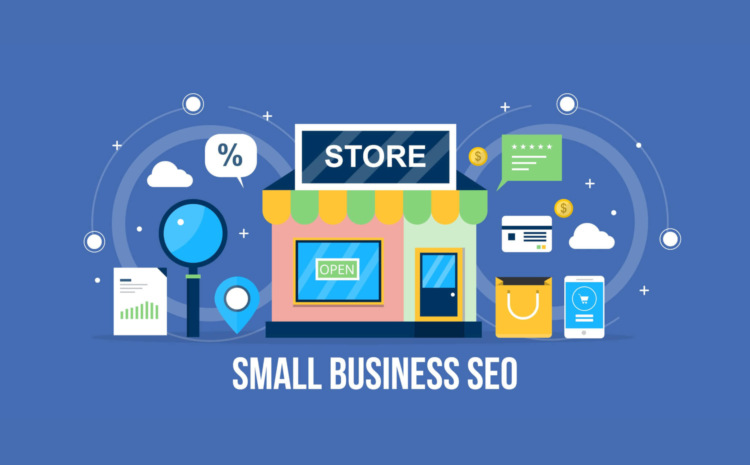









Write a Comment